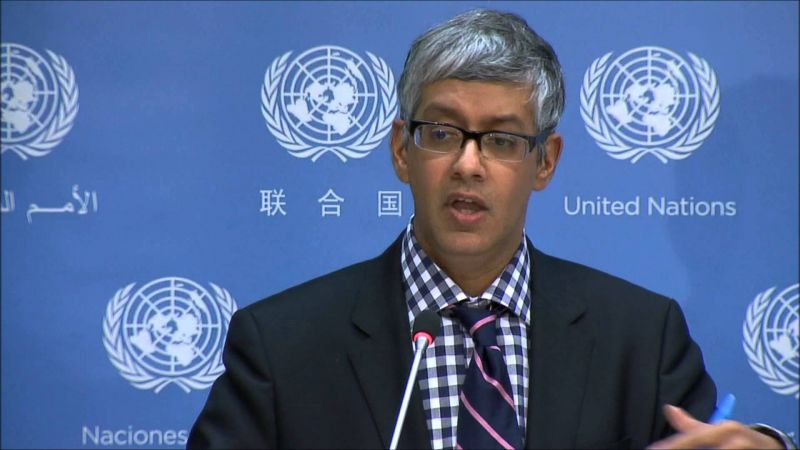
Local Editor
The United Nations said Monday it hopes Yemen's warring parties will immediately carry out an agreement to pull their forces out of the key port of Hodeida and two smaller ports, as well as a U.N. facility holding enough grain to feed 3.7 million people for a month.
U.N. deputy spokesman Farhan Haq told reporters that implementation is key at Hodeida, which handles about 70 percent of Yemen's imports, the two other ports, and the Red Sea Mills, where the U.N. humanitarian chief has implored Houthi revolutionaries to facilitate access.
The conflict in Yemen began in 2014. A Saudi-led coalition allied with the resigned regime of former Yemeni President Abd Rabbu Mansour Hadi has been bombing the country since 2015.
The fighting in the Arab world's poorest country has killed thousands of civilians and created the world's worst humanitarian crisis. Millions suffer from food and medical care shortages and the country has been pushed to the brink of famine.
The two sides reached agreement at U.N.-brokered talks Sunday on the first phase of a mutual pullout agreed to in Sweden in December from the port areas, which was seen as a key step in attempts to end the conflict.
"It's encouraging news that this has happened, as people had been losing faith in the process, causing fears that we'd soon see a return to combat in and around Hodeida," said Peter Salisbury, a senior analyst at the Brussels-based International Crisis Group.
He said the parties now need to implement the agreement, warning that "there is plenty of room for them to play games here, so we shouldn't get overexcited."
British Foreign Secretary Jeremy Hunt hailed their progress on Monday, tweeting that the agreement must be "swiftly finalized & implemented" and urging progress on the prisoner release.
Haq said that on Sunday government and Houthi representatives also reached "some tentative agreements" on a second phase of additional withdrawals, and are going back to discuss the results with their leadership.
"We hope to convene another meeting as soon as we can to move ahead on the second phase, and we're hoping that that can be announced or held in the coming days or weeks," he said.
Haq said the first phase covers mutual redeployment from the smaller ports of Salif and Ras Issa as well as Hodeida and from "critical infrastructure," including the Red Sea Mills.
"We hope that now that we have the first phase agreed it will be carried out immediately," Haq said.
U.N. humanitarian chief Mark Lowcock said in a statement on Feb. 7 that the U.N. and its humanitarian partners are scaling up to reach 12 million people in Yemen with emergency food, a 50-percent increase over 2018 targets.
He said the Red Sea Mills, in a government-controlled area of Hodeida, holds critical supplies, but the U.N. has been unable to gain access since September while the grain possibly spoils in silos. He said the Houthis have refused to authorize the U.N. to cross front lines into government-controlled areas to access the Red Sea Mills, citing security concerns.
Lowcock also deplored that two silos were hit by mortar shells last month and the resulting fire destroyed some grain — "probably enough to feed hundreds of thousands of people for a month."
U.N. envoy Martin Griffiths meanwhile departed from Sana’a on Monday, a day after meeting with Houthi leader Abdul-Malek al-Houthi to discuss the situation in and around Hodeida.
Source: News Agencies, Edited by Website Team